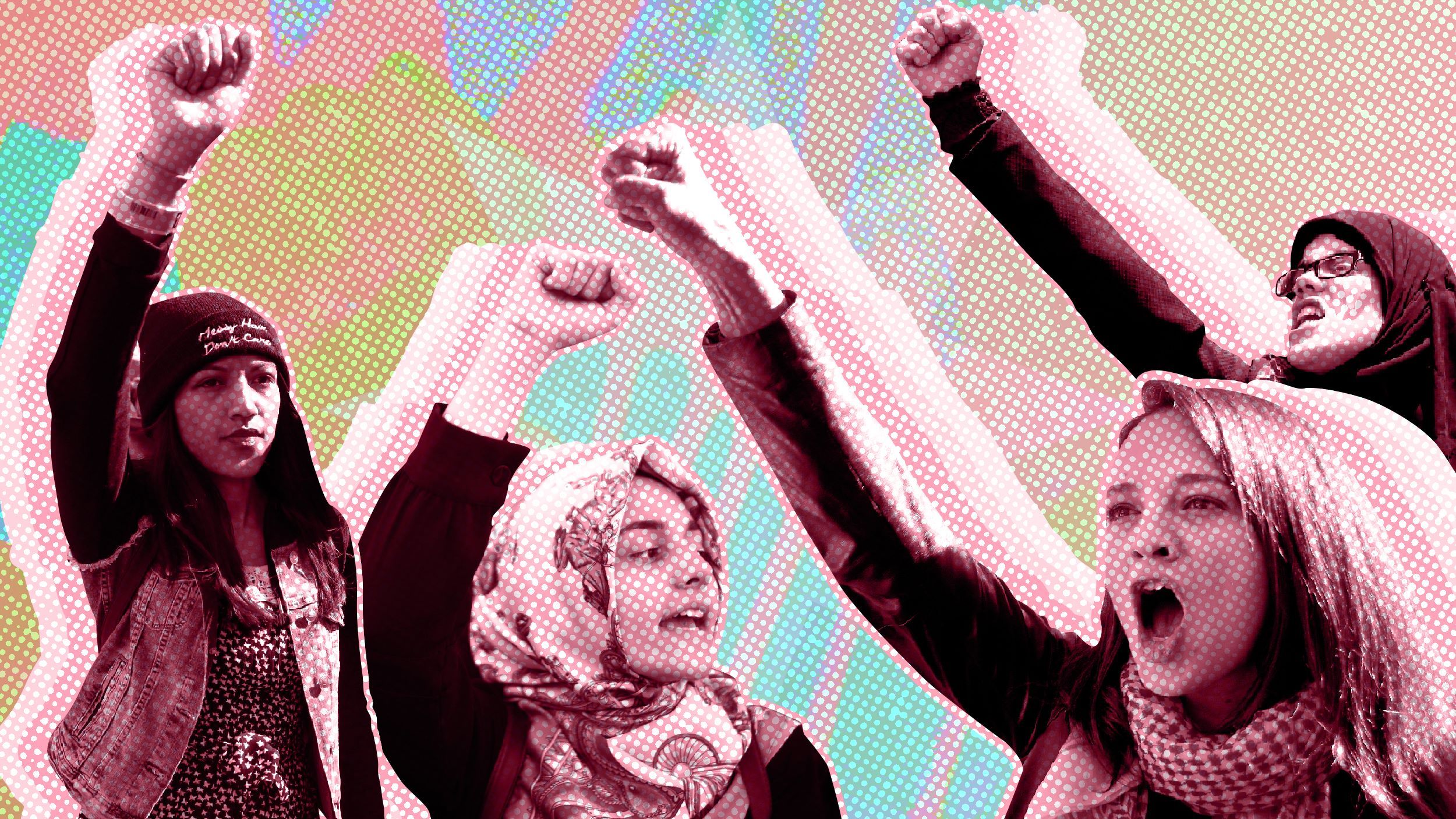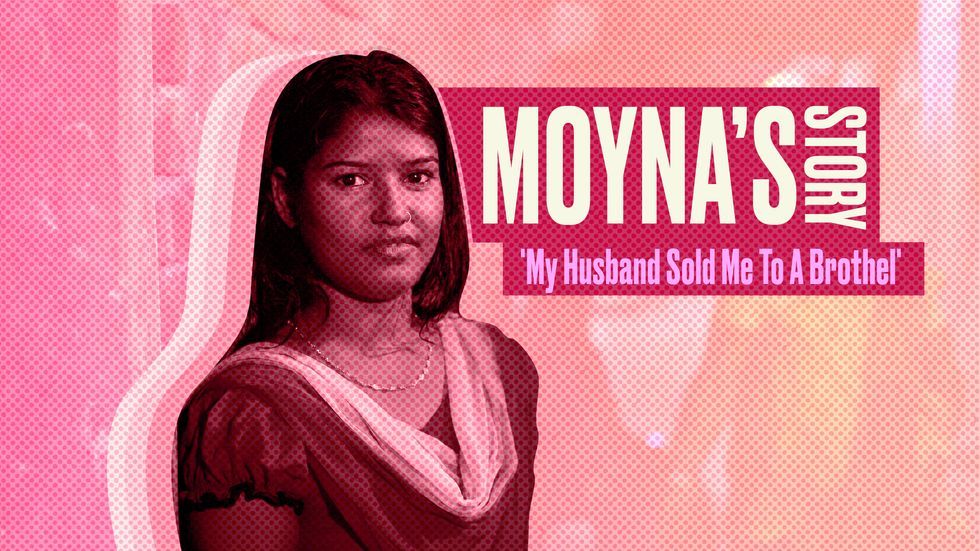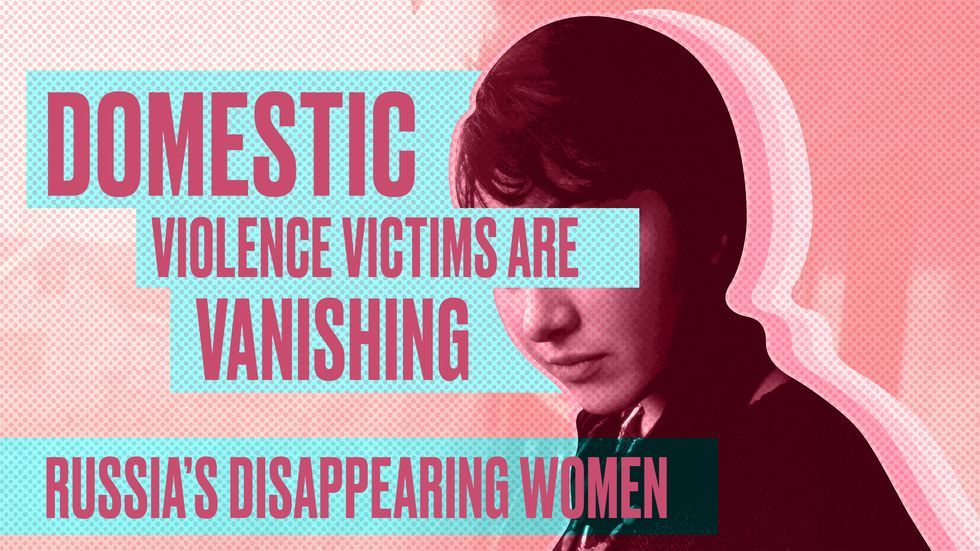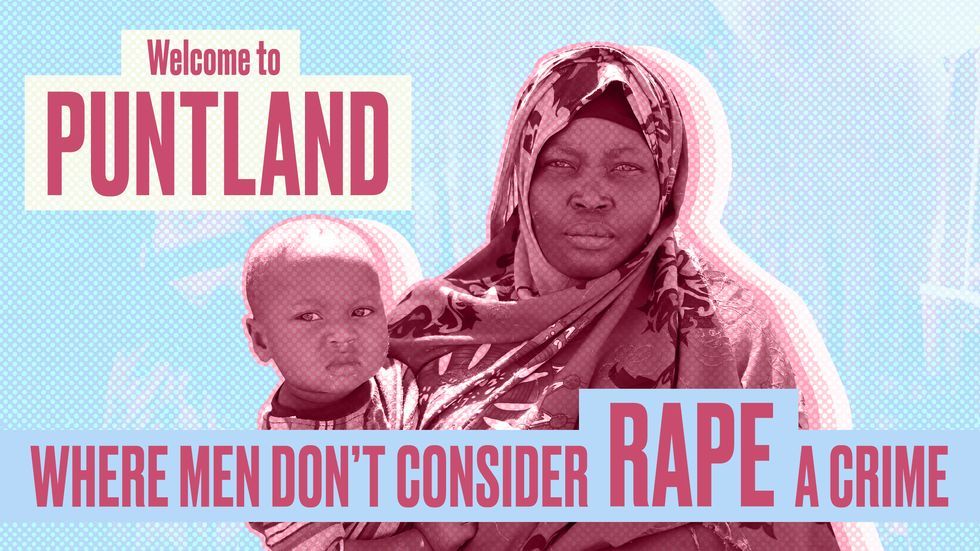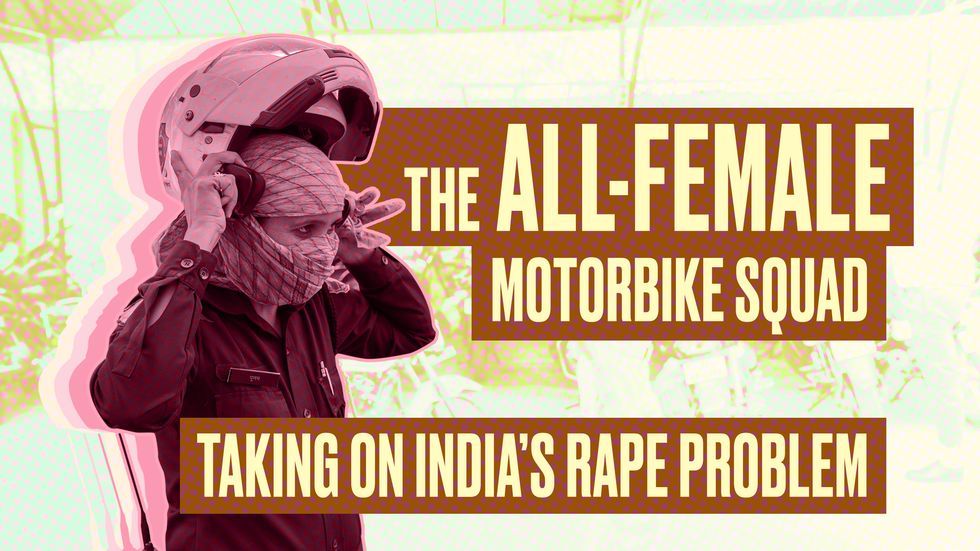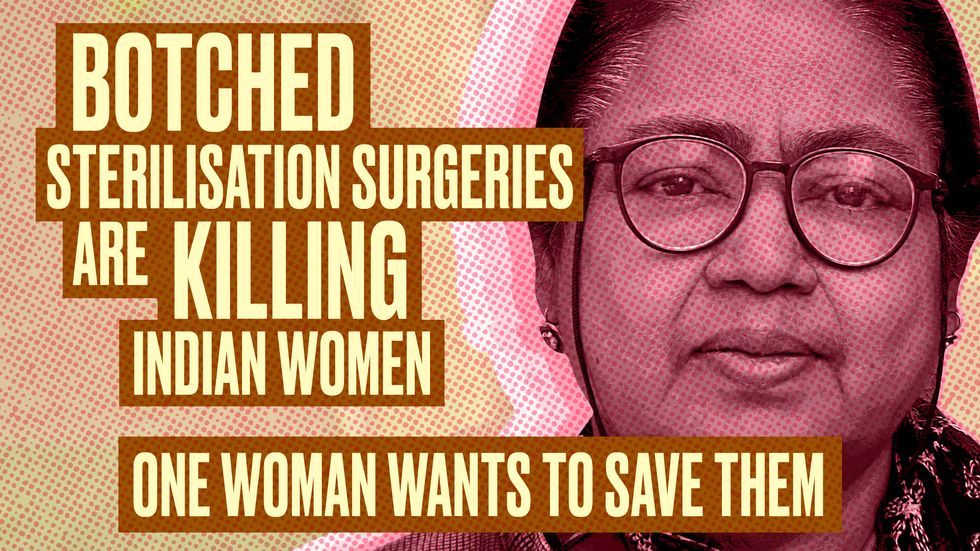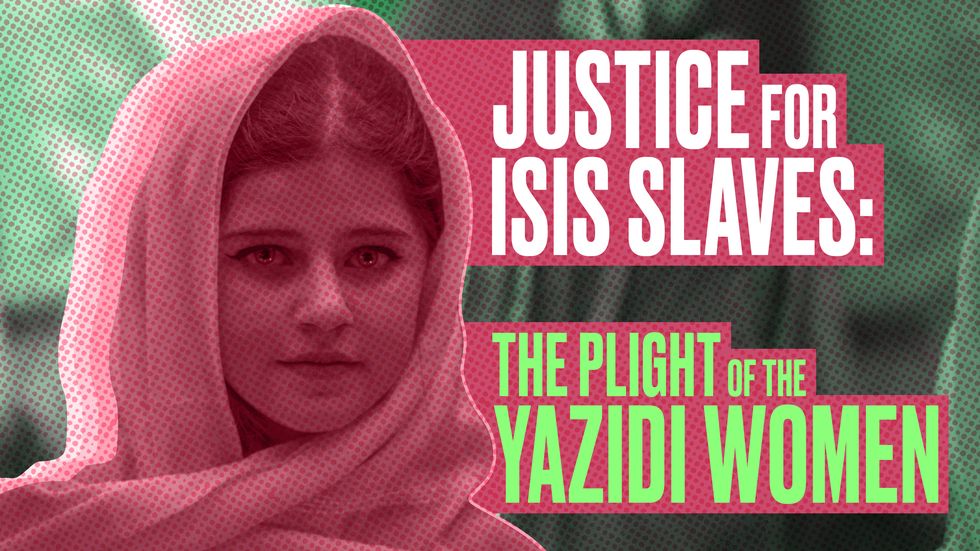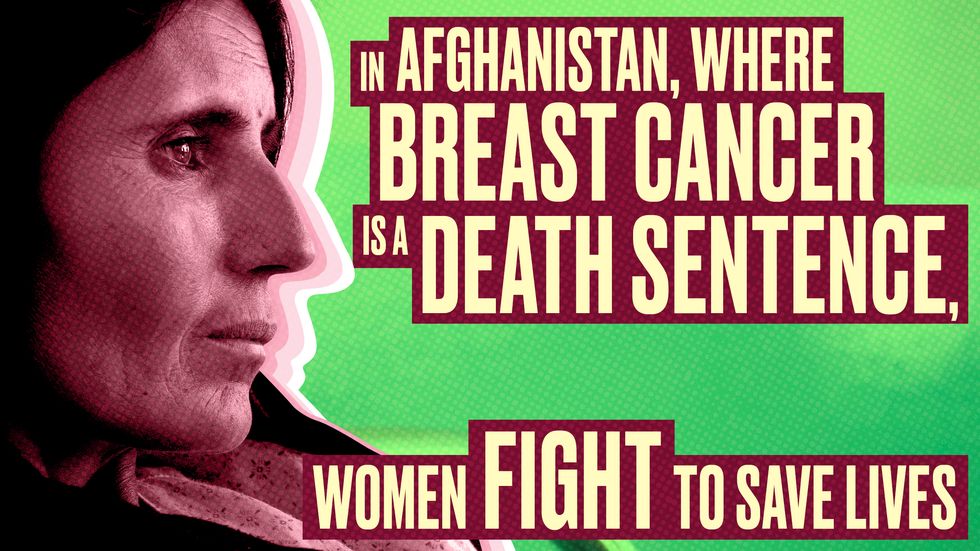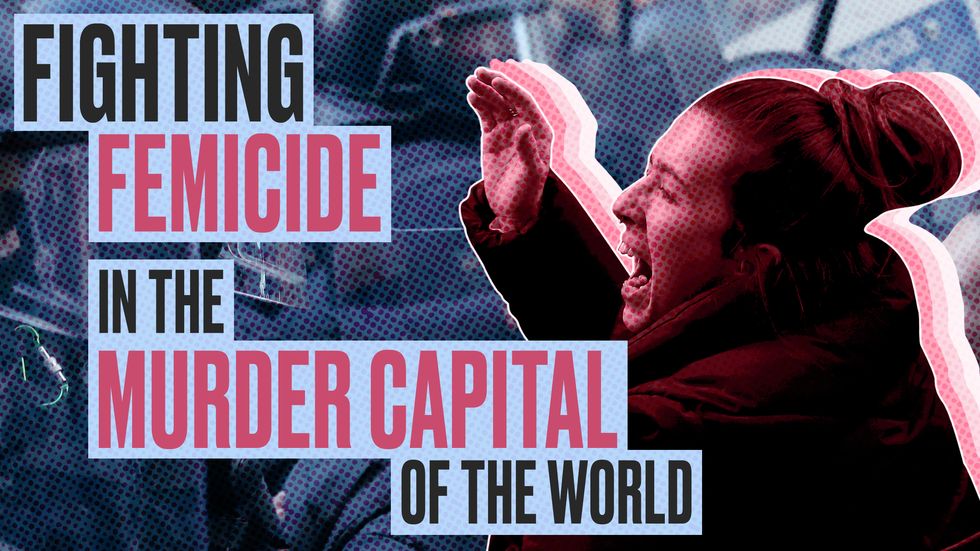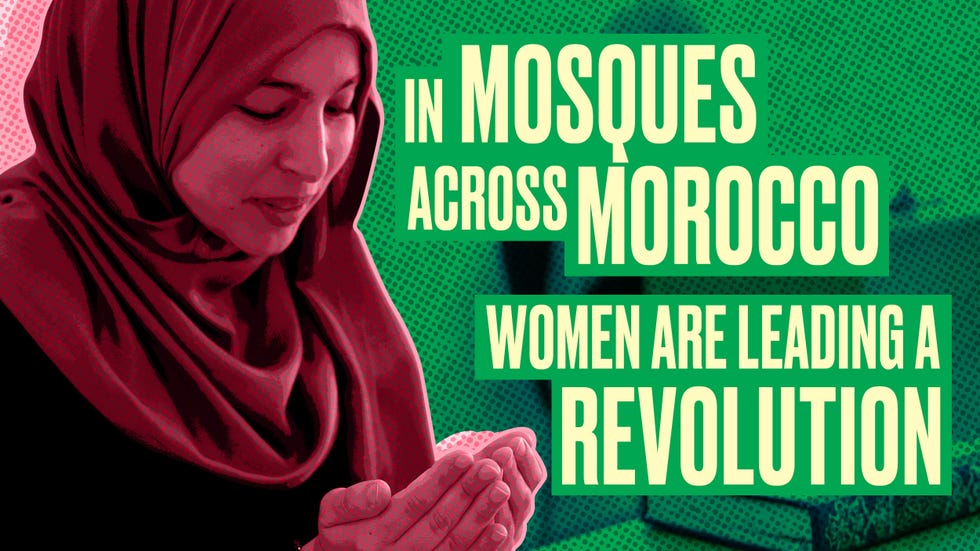From Moscow to Mogadishu to Managua, join us as we tell the stories of women fighting to change the world around them.
For too long, men have dominated the news, and dictated who reports it. Starting in 2018, we find ourselves at a critical moment for women globally. From women's marches to #TimesUp, to individual acts of feminism and bravery from women around the world, women's advancement is a major news story.
Today, we are thrilled to launch a year-long editorial project, The Warriors. Throughout 2018, ELLE will partner with the Fuller Project for International Reporting, a journalism team that reports on the world through a woman's lens.
From Mogadishu to Moscow to Managua, our reporting on terrorism, economics, health, security and politics looks specifically at the role of women, honing in on those fighting to change laws and attitudes that have traditionally oppressed women.
These are the stories you've been missing. Stay tuned!
Warmly,
Christina Asquith - Founder & editor-in-chief, the Fuller Project
Natasha Bird - Digital Editor, ELLEUK.com
Sophia Jones - International editor & journalist, the Fuller Project
Louise Donovan - Deputy Digital Editor, ELLEUK.com
Over the course of seven months, journalists Corinne Redfern and Allison Joyce followed the lives of sex workers in Bangladesh as part of an exclusive investigation into internal trafficking across the country.
It's estimated that there are over 20 'brothel villages' dotted across Bangladesh, with up to 10,000 employees split between them. There's one rule, but it's consistent: every sex worker must be in possession of a police-issued certificate declaring she's there willingly, and that she's over 18. How she gets it - how she gets to the brothel in the first place - is a question few seem to want to ask.
Local NGOs, including Rights Jessore, the Bangladesh National Women Lawyers' Association and BASHA Enterprises, understand the difficulty in getting women out of brothels. They're working tirelessly to provide sex workers with alternative vocational training, currently accommodating over 100 women in secret shelters across the country. But after years of abuse, thousands more sex workers are too deeply traumatised to leave: the stigma of what they've experienced is too strong.
Since we published the story of Moyna, many of you have been in touch to say you were looking for ways to help her and to help the many other girls in her situation. As a follow up, to answer your questions, we've written this:
Delve further into this underground world here:
New legislation in Russia means that men can avoid criminal prosecution for domestic violence. Russia already had a serious domestic violence problem: at least 12,000 women are thought to be killed each year at the hands of their abusers, mostly male partners, according to Human Rights Watch. That is roughly one woman every forty minutes. And those are just official numbers; much abuse goes unreported. As if that weren't bad enough, women are often sent back to their abusers when they go to the police. And those are the women who have mustered the courage to seek help.
Journalist Amie Ferris-Rotman and photojournalist Joel Van Houdt travelled to Russia to learn from Armenian-Russian lawyer Mari Davtyan, who defends female victims of abuse across the country and has formed a cohort of women who have designed a far-reaching, clear-cut law they hope will convince the Russian government to reverse the changes.
They also spent time with Maria and her son Andrei, themselves victims of domestic abuse, currently holed up in one of Russia's secret survivor shelters.
While we shine a light on the broad spread of domestic abuse cases in Russia at large, we also delve into one particular story of a woman determined to change the shape of Russia's future.
Alena Popova leads a cohort of women driven to dangerous and persistent protest of the recent domestic violence laws. For the 35-year-old trainee lawyer, trolling the patriarchy is currently a full time job.
Read about Alena's story here:
And now we move on to Somalia, a place where rape is so common that many don’t even consider it a crime at all. Here, almost every woman has a #metoo story, but little means of fighting for justice. Here, violence against women makes up 30 per cent of reported crimes, according to the United Nations.
The real number is likely much higher.
In Somalia, we follow the story of Shamis Abdi Bile, a police officer of extreme exception. Bile works tirelessly (and often without remuneration) to ensure that cases of rape and sexual violence are given due attention. Her compassion and her determination have changed the lives of countless women and the government is starting to take notice and make changes for the better.
Our next step for the Warriors took us to India. Specifically to Rajasthan, where we shadowed a new, all-female police unit, trained to tackle sexual harassment.
The pioneer unit, launched in Jaipur, consisted of 52 policewomen who patrol the streets protecting women, preventing crimes like harassment (known colloquially as ‘eve-teasing’), rape, molestation and assault. No matter how big or small, every such crime against women is taken seriously by this particular squad.
At a time when India's rape and sexual violence crimes have been mounting to terrifying proportions, these women are tackling the issue at its source.
Since then, all-female squads have been sanctioned in seven other major cities in the state.
In a different region of India now, The Warriors project sheds light on the countless botched sterilisation surgeries killing women.
For decades, sterilisation camps have been at the forefront of India’s efforts to combat population growth. India’s government offers cash incentives to women and men who choose permanent sterilisation. But this approach has disproportionately focused on the rural poor and uneducated – those who are blamed for India’s burgeoning population and thus its woes from poverty to hunger.
The cash incentives for doctors, patient referrals and the patients themselves mean that, often, hundreds of sterilisation surgeries are carried out by a single surgeon in one day. And frequently, without fresh surgical tools or a change of gloves.
One woman, Devika Biswas, is determined to change all this.
Next in The Warriors series, our project takes us to Iraq, where we investigate the shocking reality of the Yazidi genocide.
ISIS fighters committed genocide against great swathes of Iraq’s minority Yazidi faith, but while the atrocities were multifold, we shed a light on the particular experience of Yazidi women. While Yazidi men, once captured, were largely executed, Yazidi women were often sold into slavery.
We speak to Yazidi women who managed to escape the clutches of their ISIS captors and look into the movement, spearheaded by Yazidi emigré Pari Ibrahim, trying to make the link between female survivors and their captors.
The ultimate aim of Ibrahim's Free Yezidi Foundation is to bring the ISIS aggressors to court, so that even a single one of them can be tried and found guilty of rape crimes and genocide.
From Iraq we move onto Afghanistan, where breast cancer is often a death sentence for the women living there. There is only one oncology department in the entire country, no readily available chemotherapy, and no radiation. Incredibly, there's evidence that more women die from the disease than they do from war.
But a pair of sisters are fighting to save women’s lives. Thirty-three-year-old Dr. Sohaila Niazi, the country’s first-ever female oncologist, is tasked with treating the Afghan women who end up at Jamhuriat Hospital. She works alongside her 27-year-old sister Najia, who says she's the country’s sole cognitive behavioural therapist and works with patients diagnosed with cancer.
Poverty, war and a shortage of trained medical professionals make it difficult for women to seek medical care.And while the sisters know they won’t be able to save most of the women who come to them for help (unless something drastically changes), they won't give up. Instead, they search of answers and a future where Afghan women aren’t destined to die.
This is their story.
El Salvador is considered to be one of the most dangerous countries in the world. A small, densely populated state in Central America, it has the highest homicide rate outside of a war zone. On average, a murder happens every two hours. In January 2017, the country hit headlines around the world because no killings had been reported in 24 hours – a rare occurrence.
In this bloody landscape, the prognosis for women is especially bleak.
Here we investigate the perilously high incidences of 'femicide' in the country and look at the state of toxic masculinity that led to domestic situations being so dangerous for the country's women.
The final destination, for our year long project, was Morocco, where we talked to some impressive women hosting something of a state-sanctioned revolution, from inside of the Islamic religious structure.
From counselling women on their domestic situations, through to actively reducing religious extremism, the mourchidat programme is history-defining.
'The Warriors' is funded by the European Journalism Centre
via its Innovation in Development Reporting Grant Programme.
The Warriors Graphic Design: Luke Nukem: Dirty Public.
